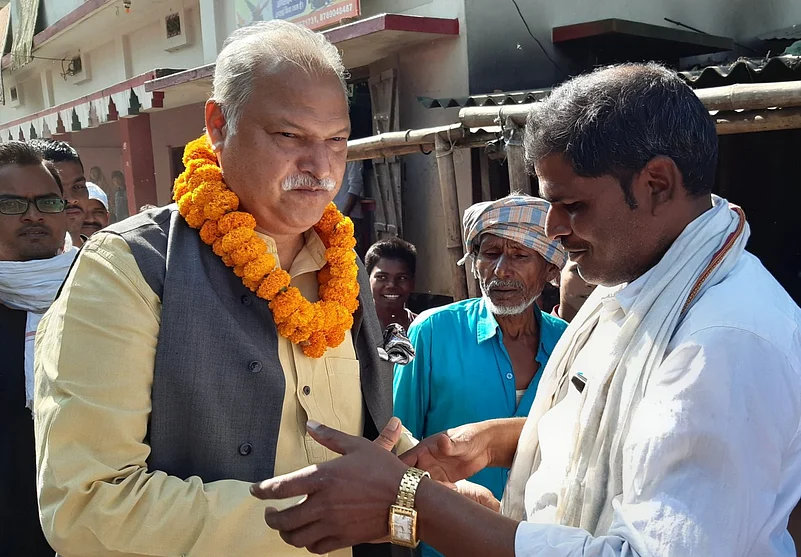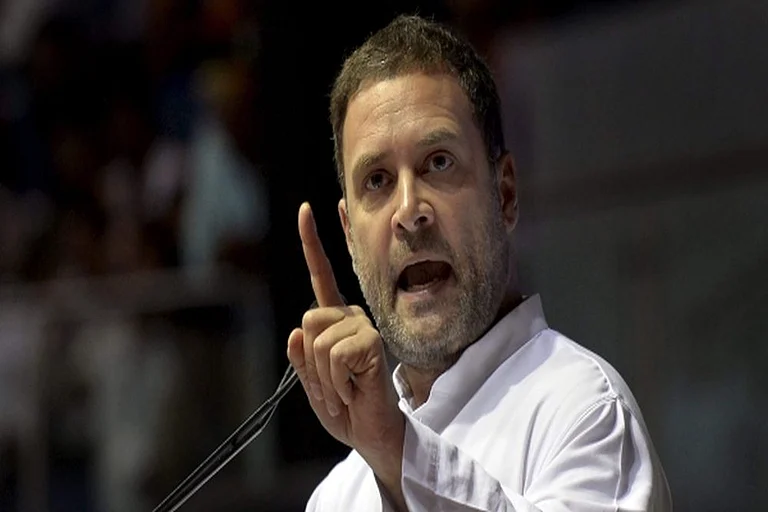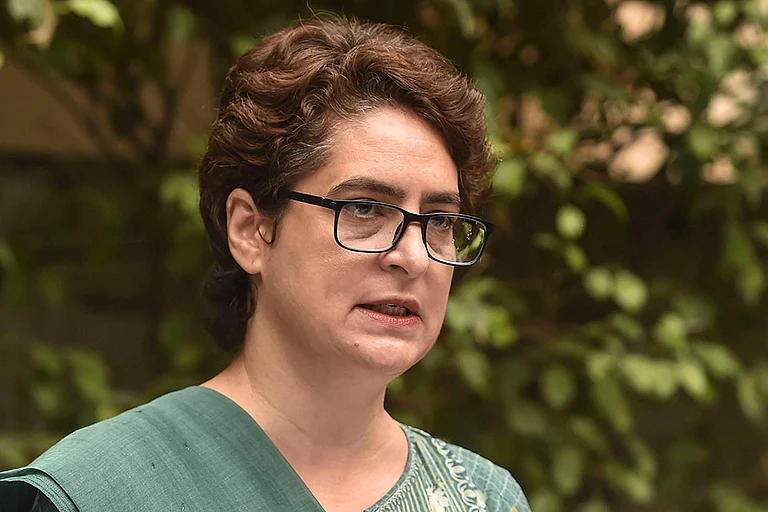
Shakeel Ahmad Khan highlights grassroots outreach, Rahul Gandhi’s interventions, and targeted campaigns as key to improving performance, especially in Seemanchal, Champaran, and other regions
Shakeel Ahmad Khan says Congress has worked hard over the past six months and is confident of winning more seats
Internal conflicts, corruption allegations, and public dissatisfaction against the BJP give Congress and Mahagatbandhan an opportunity to capitalise on during elections
Mahagatbandhan allies have finalised their seat-sharing arrangements. Campaigning has begun, and the combined election manifesto is expected to be released soon. It will merge key promises, including jobs and livelihoods for every household, with Congress pledges such as 200 units of free electricity and subsidised gas cylinders.
Outlook spoke to Bihar Congress Legislature Party (CLP) leader Shakeel Ahmad Khan, 58, a two-time Kadwa (Katihar) MLA and former president of the JNU Students Union (JNUSU), about the Congress’s prospects and the challenges within the Mahagatbandhan.
What are the prospects of Congress in Bihar over the past six months? Will there be a improvement from last time?
Congress has worked hard over the past six months to build momentum. Several activities have energised the party, and we have actively reached out to the grassroots.
There are two key aspects to Congress’s rejuvenation in Bihar: one was Rahul Gandhi’s planned interventions, and the other was holding back-to-back conventions. We have reached out to MBCs and OBCs, and the CWC meeting was held in Patna.
There is going to be a significant political shift in Bihar. We have promised to increase the reservation for Pichada and Ati Pichada castes in Panchayat elections. Our manifesto proposes 34 per cent reservation for them. The current 20 per cent reservation for the Ati Pichada category in Panchayats and urban local bodies will be increased to 30 per cent. To raise the overall 50% reservation cap based on population proportion, the law passed by the Legislative Assembly will be sent to the Centre. Rahul Gandhi also assured that discriminatory practices, such as the “Not Found Suitable” clause in appointments, would be abolished.
What Congress is offering is distinct from Nitish Kumar’s approach. Rahul Gandhi visited the Ambedkar Welfare Hostel as part of his outreach efforts. The party also conducted the “Vote-Chori Yatra,” and the 'Roko Palayan, Do Naukri' campaign, which engaged with different sections of society. Additionally, several party functionaries have been deployed to reach out directly to the people.
Are there tussles within the Mahagatbandhan and there were complaints against the AICC incharge Krishna Allavuru?
Politics is not a one-day game. It involves what happens before and after elections. We are contesting in 61 seats, having reduced the number from before. “Ab Rishta Barabari ho gaya.” I was present during all the negotiations, and decisions were taken collectively. So one person cannot be blamed.
For the last ten seats there may have been some disagreements. We wanted ones we had a strong chance of winning. We also aim to improve over time.
During the three to four days of bargaining, there were complaints and counter-complaints. While we may not have performed well in the Assembly elections, we did decently in the Lok Sabha elections. With time, circumstances change, so it’s best not to dwell on the past.
We had a large number of applicants—sometimes up to 60 per seat, and for one reserved seat, as many as 140 applications. We must also consider our party workers.
Throughout the talks, we approached the discussions with a fresh mindset, and Tejashwi was patient, listening to everything we had to say. Ashok Gehlot ji is a senior leader and he had to come. In politics, complaints are inevitable, and a senior leader is needed during announcements and last-minute talks.
It was just 4–5 days of intense negotiation, but now the candidates have settled, Tejashwi has begun his campaign, and we are confident of doing well.
Is BJP expecting an easy win? Are there any issues affecting them ahead of the elections?
There is trouble within the BJP as well. The deputy CMs (Samrat Choudhary and Vijay Sinha) are at odds with each other, and several corruption issues have come to light. Prashant Kishore, though one of our opponents, has exposed many of their corruption cases.
Bihar is witnessing a strong political battle. People are frustrated with the BJP’s governance and the NDA government in the state. Corruption is widespread at all levels, from the bottom up. What is particularly alarming is the “estimate gotala,” which is considered the biggest scam in Bihar.
What do you think will happen after election in the NDA?
Everyone knows that the BJP has a plan to remove Nitish Kumar as Chief Minister and undermine him. Nitish is aware of this, and only time will tell what decision he ultimately makes.
Will Asaduddin Owaisi’s AIMIM be able to win in Seemanchal like they did in 2020?
AIMIM is unlikely to get votes in the Seemanchal area this time. People are upset with them as several of their tickets were sold. MIM is not expected to win a single seat this time in Seemanchal. Their presence seems aimed at disturbing the region and splitting secular votes. MIM has fielded candidates in 25 seats in not just Seemanchal, but also North and South Bihar. Owaisi contested 19 seats in the Seemanchal region last time, winning five of them, but four of his MLAs left to join RJD.
What about West and East Champaran? Congress didn’t do too well there last time.
This time, the Mahagatbandhan and Congress are expected to perform better in the region. Last time, we won very few seats. This time, we are contesting 20 seats and aim to win more than 50 per cent of them compared to last time.
I’ve asked about everything except your seat, Kadwa. What are your expectations?
It will be a good fight, but I am confident that I will win. My constituency is a rural area surrounded by the Brahmaputra, with 92 percent of the population below the poverty line. Migration is high, there are hardly any educational institutions, and the health system is non-functional. These are all failures of the Nitish government.
I have tried to improve the situation and have established 13 new hospitals, but without doctor appointments from the government, they cannot function properly.



























